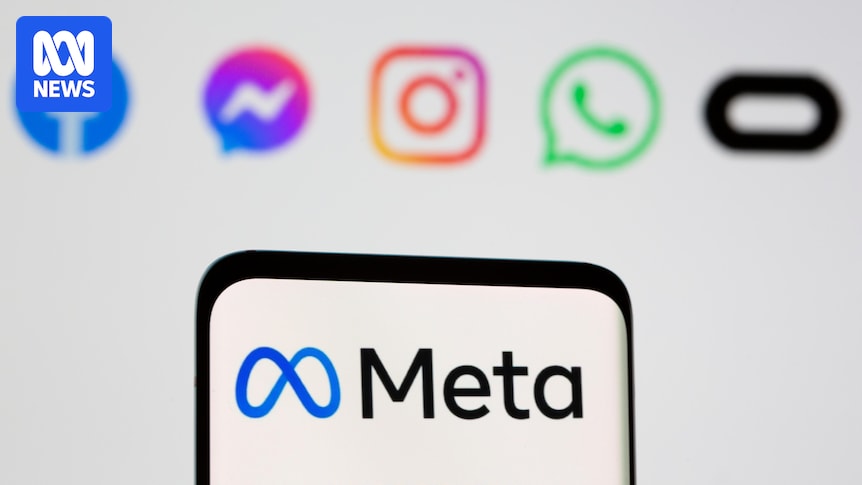
Suna often scrolled through her social media accounts to reminisce about her late father, who passed away from dementia in 2019. It was her way of reliving precious moments. “When my dad died, it was very traumatic, so I would often go on Facebook to look at photos of him,” Suna shared. “Each post was like a reminder, holding a memory of the times I spent with him. Even the simplest of photos, like one of us drinking coffee, meant a lot to me.”
However, on July 12, those cherished photographs, conversations, and voice notes were suddenly inaccessible. Meta, the parent company of Facebook and Instagram, banned Suna’s personal accounts, falsely accusing her of posting child exploitation material. The shock was compounded when she received an email stating her ban was due to child sexual exploitation.
Suna, who maintains she never posted anything inappropriate, immediately appealed the decision, but her efforts were unsuccessful. “They’re [Meta] accusing us of things we haven’t done with no proof, it’s unfair. To lose everything without warning has been incredibly hard,” she lamented. She is not alone; many users have experienced similar issues.
Global “Ban Wave” Raises Concerns
Dozens of users have contacted media outlets, expressing devastation at losing sentimental memories and being unable to communicate with friends and family. This phenomenon, referred to as the Meta “ban wave,” has sparked questions about the company’s methods for identifying breaches of community standards. Thousands worldwide have signed a petition accusing Meta’s “broken AI enforcement systems” of wrongful bans and unresponsiveness to appeals.
Meta did not respond to inquiries regarding Suna’s case but reinstated her account shortly after email correspondence. This situation highlights the fragility of digital memories and the potential pitfalls of relying on social media platforms for preserving personal history.
The Ephemerality of Social Media
On July 15, Eliza Aydin posted a photo on Instagram showcasing flowers she received for her 22nd birthday. Shortly after, she received an email that her account was suspended for violating community standards on child sexual exploitation, abuse, and nudity. Despite appealing, she remains locked out of her primary communication platform with friends and family overseas.
“I use Instagram as a way to document my life,” Aydin explained. “I have family milestones, personal achievements, old photos with friends, and voice notes that I can’t access anymore because they’re not saved anywhere else. It’s been incredibly stressful. I feel like I’m being silenced.”
University of Melbourne senior lecturer in media communications, Jennifer Beckett, commented on the situation, saying, “We’re used to being able to create so many memories so quickly that we have kind of forgotten about the ephemerality of a lot of that.” She emphasized the trauma users face when losing access to their memories, noting the potential damage to one’s reputation and mental health from false accusations.
Protecting Digital Memories
Experts advise users not to rely solely on social media platforms for storing memories. Karen Sutherland, a senior lecturer in public relations at the University of the Sunshine Coast, advocates for returning to “old-school methods” of backing up information. “If they really are treasured memories, you have got to treat them that way,” Dr. Sutherland advised.
- Cloud platforms
- External hard drives
- Physical photo albums
On Facebook and Instagram, users can download copies of their information, including posts, photos, videos, and messages. Dr. Beckett stressed the importance of physical backups, stating, “It’s ones and zeros in space, and you are completely at the whims of the political economy of digital media.”
AI Moderation Under Scrutiny
Meta claims to use both human and AI technology to moderate content that violates its community standards. However, experts argue that AI moderation lacks the necessary accuracy. “Soon after President Donald Trump came into office, Meta decided to cut out human moderators and rely more on AI,” Dr. Sutherland noted. “But there lies the problem. AI isn’t developed enough to accurately understand different nuances around different types of content.”
Dr. Beckett concurred, adding, “While AI can make a decision, it’s very bad at context.” Despite inquiries, Meta did not comment on claims that AI was responsible for the unfair bans. Meanwhile, the Australian government is working towards industry guidelines to help users raise issues and achieve better outcomes, including addressing account bans.
The implications of these wrongful bans are profound, affecting not only personal memories but also the livelihoods and mental well-being of those affected. As Meta faces increasing scrutiny, the need for reliable and fair moderation systems becomes more pressing.







